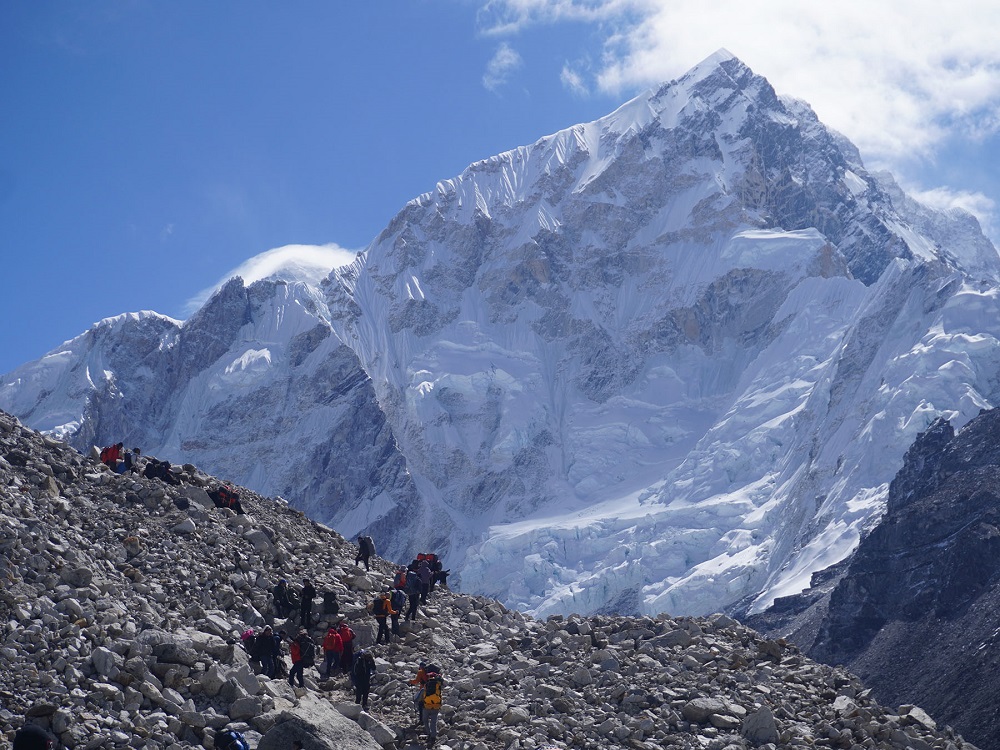China CAMC Engineering Co. Ltd. (CAMCE), the contractor for Nepal’s Pokhara International Airport, has strongly rejected recent media reports alleging irregularities on its part in the airport’s construction. The company stated that the reports were based on an ‘unauthorized release’ of a parliamentary subcommittee’s findings, which it claimed, are riddled with factual inaccuracies.
The Public Accounts Committee’s (PAC) subcommittee report—submitted on April 28, 2025—claims widespread misuse of funds and procedural violations during the construction of Nepal’s third international airport. CAMCE responded through a formal statement published in the Gorkhapatra Daily on Tuesday, May 20.
Read: Pokhara International Airport: How Billions Were Lost in Irregularities
“The claims made in the report regarding our company are entirely inconsistent with the facts,” the statement read. “The content published based on the report lacks in-depth investigation and objective analysis of the overall project implementation process, which is both surprising and deeply concerning to us.”
CAMCE emphasized that, as a professional and responsible international engineering firm, it strictly complied with all legal and regulatory requirements of the Government of Nepal throughout the bidding, contracting, and implementation phases. The company added that it has fulfilled every obligation under the signed agreements and has maintained comprehensive documentation of its compliance.
The PAC subcommittee—led by Rastriya Prajatantra Party President and Member of Parliament Rajendra Lingden—was formed in 2024 to investigate allegations of corruption, mismanagement, and procedural lapses in the project. The report alleges irregularities at every stage, from planning and procurement to execution, and recommends a detailed investigation into both the legal and technical aspects of the project. It also urges accountability for those found involved in wrongdoing.
Read: Alleged Corruption at Pokhara Airport Construction: Subcommittee Submits Findings
One of the most serious claims involves the approval of tax exemptions without legal justification. The subcommittee noted that a task force was formed specifically to rationalize inflated project costs, allegedly in violation of the Public Procurement Act. The report further states that the Civil Aviation Authority of Nepal (CAAN), along with the ministries of Finance and Tourism, repeatedly amended implementation agreements, granting tax waivers totaling Rs 2.224 billion without adequate oversight or transparency.
In response, CAMCE asserted that its handling of tax-related matters fully complied with the implementation agreement signed between the Governments of Nepal and China. “Granting tax exemptions on government-to-government cooperative projects is an internationally recognized standard,” the statement clarified. “We strictly followed all approval protocols established by the Government of Nepal for import tax exemptions on equipment and construction materials. All required master lists and supporting documentation were duly submitted and have been securely archived.”
The Pokhara International Airport was built under an Engineering, Procurement, and Construction (EPC) model, funded through a concessional loan from China Exim Bank. The Rs 22 billion contract was awarded to CAMCE with loan repayment scheduled to begin seven years after disbursement and stretched over 13 years in 26 installments.
Despite the scale of investment and the airport’s formal inauguration on January 1, 2023, the airport has struggled to operate regular international operations. The airport’s underutilization has prompted growing concerns that it may turn into a financial “white elephant”.
The subcommittee’s members included MPs Janardan Sharma, Gokul Prasad Baskota, Amanlal Modi, Arjun Narsingh KC, Prem Bahadur Ale, Ramkrishna Yadav, Tara Lama, Dev Prasad Timilsena, and Deepak Giri. While eight members, including coordinator Lingden, fully endorsed the findings, some, such as Baskota, registered dissenting opinions.
CAMCE has called on the Government of Nepal to investigate the ‘unauthorized disclosure’ of the report, correct the misleading information disseminated, and ensure that the truth behind the allegations is transparently revealed.













